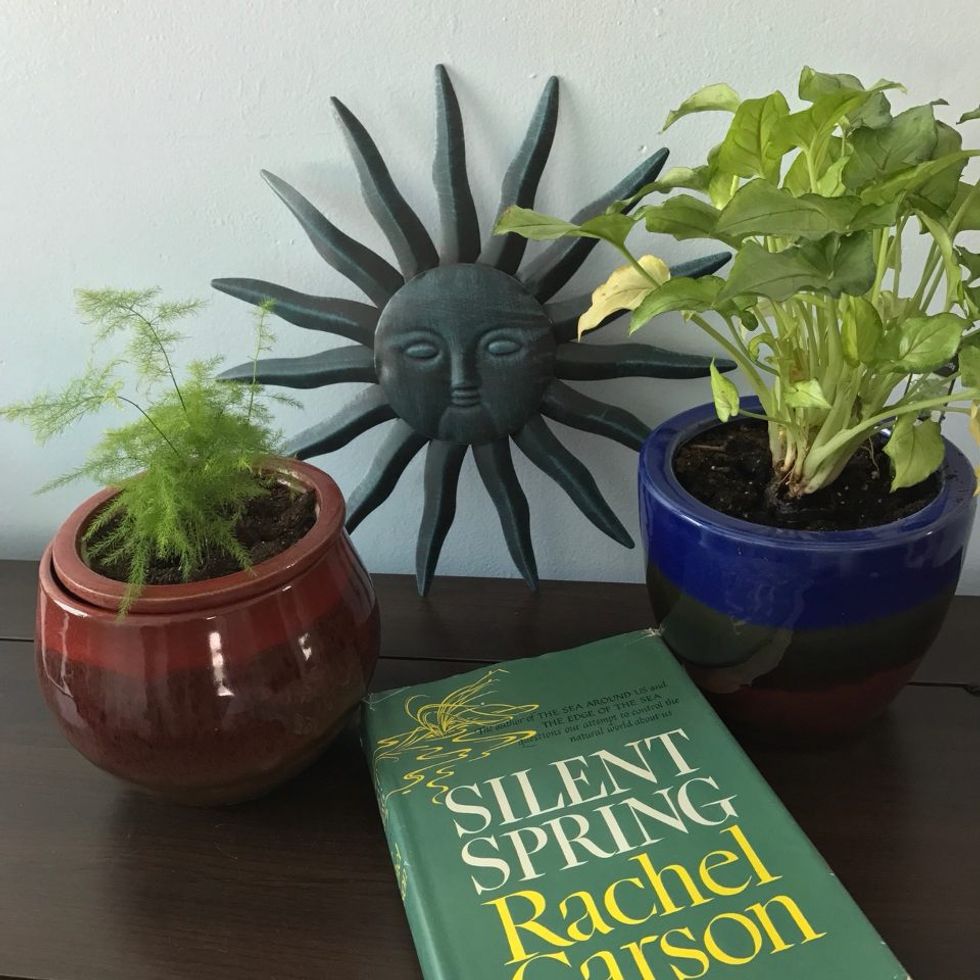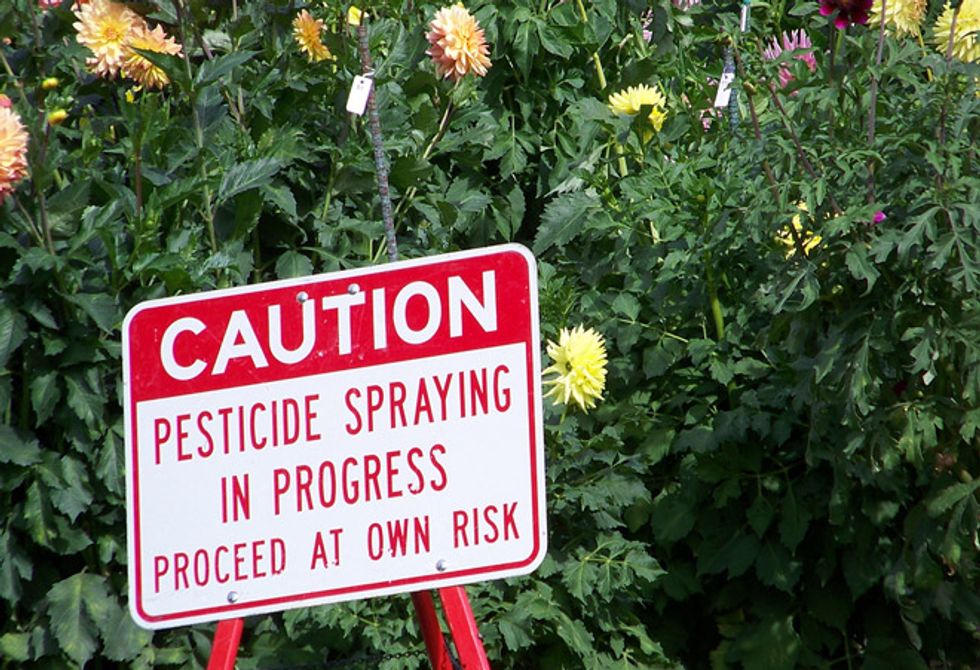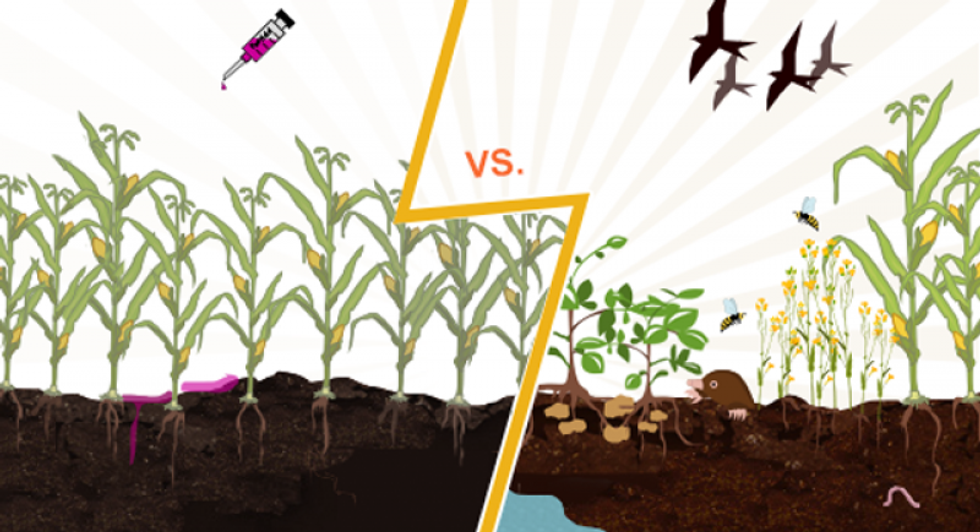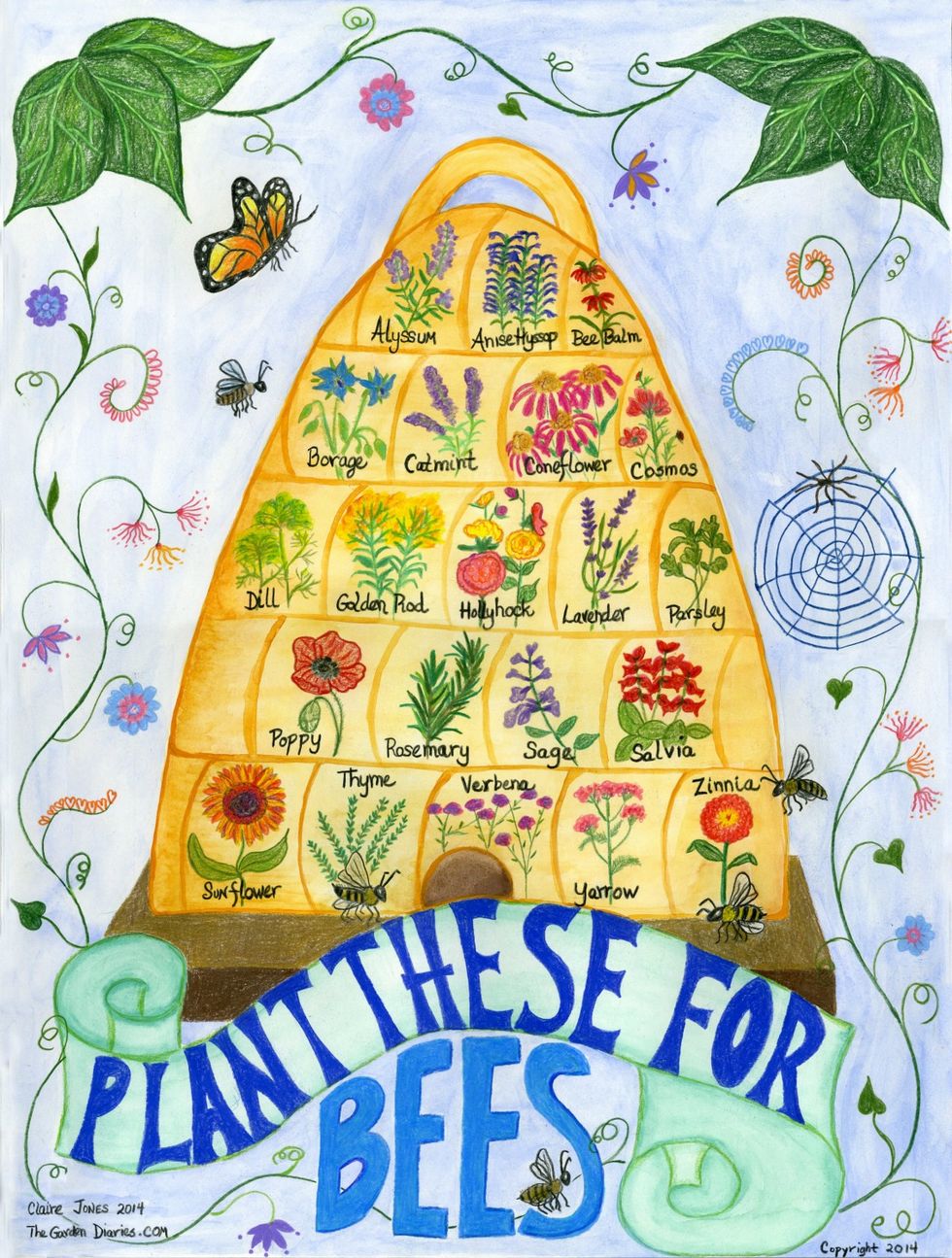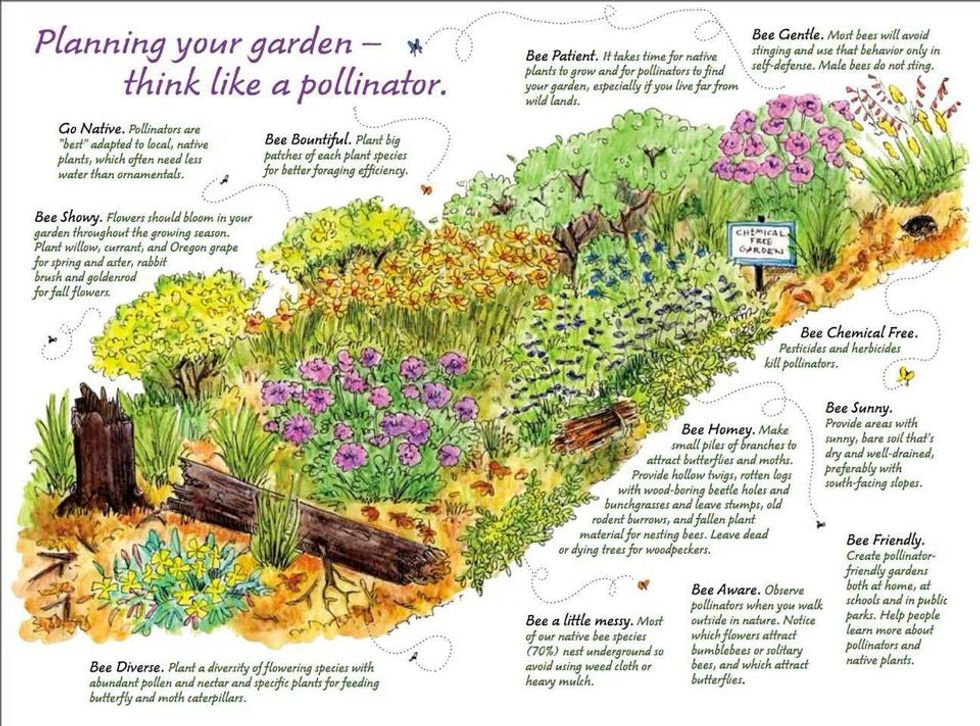In 1962, Rachel Carson's "Silent Spring" was a catalyst in the environmental movement across the globe. The publication painted a picture for readers of a future where the natural world is harshly compromised by the widespread use of pesticides, specifically DDT. Carson explained that these chemicals were not only killing bugs, but traveling up the food chain, putting bird and fish populations at risk, and eventually humans. Although the information she wrote was not groundbreaking, Silent Spring was the first time the data collected by the scientific community was put together and interpreted in such an eye-opening way for the masses.
Now, 54 years later, we find ourselves watching a new saga featuring the same plot, but starring a different species. In 2006, beekeepers across the globe began noticing large numbers of bees missing from their hives. In the past year, bee populations have plummeted by more than 40%. This strange phenomenon prompted scientists to coin the term, Colony Collapse Disorder (CCD), which occurs when the worker bees in a hive disappear, leaving a queen, nurse bees and baby bees to fend for themselves. Without the usual majority of worker bees to collect nectar and pollen and bring it back, the hive dies. CCD has decimated roughly 10 million beehives in the past six years, but what is responsible for this attack?
In this case of mass bee murder, the primary suspect is neonicotinoid pesticides. The most widely used insecticide in the United States, these harmful chemicals, also known as neonics, not only damage neurological functions such as memory, cognition, and behavior, they also cause impairment of navigational abilities- not the best skill for worker bees to lose. When a seed is treated with neonics, the chemicals are absorbed into the plant’s vascular system and end up in the pollen and nectar which is brought back to the hive and starts a domino-like effect throughout the population. In addition to using pesticides, many farms in the United States and worldwide have abandoned their traditional crop rotations and instead plant large fields of only one crop. This practice eliminates options for pollinators because unless the one crop being planted happens to be in bloom, there is no food for the bees.
As if pollinators don’t already have enough on their plates with the lethal doses of pesticides found at large farming practices, many plants sold at garden supply stores such as Lowes and Home Depot are treated with neonics. Creating a safe haven for bees in your home garden is a prosperous and easy process for both you and them.
Planting native, bee-friendly flowers and flowering herbs will provide bees with plenty of food and habitat options for the populations in your area. Avoiding chemical usage and using organic soil in your yard will allow the bees to flourish, and ensure a healthy environment for everyone!
After a long day of collecting pollen and nectar for their hive, worker bees get thirsty. Now that you’ve provided them with access to pollen and nectar sources, you can help them out even more by putting a bowl of water out. A stylish way to prevent the bees from drowning and cater to more than one creature in your area is to place some rocks in the bottom of a birdbath, creating landing spots for both the birds and the bees. There are many other steps you can take to work towards reviving bee populations, including buying fruits, vegetables, and honey from local farmers in your area, supporting the neighborhood bees and economy!
One of the most important things you can do to help bee populations thrive again is to make your voice heard by educating your community and reaching out to Congress. If you live in an urban area or a dorm without much space of your own, you can volunteer to organize planting a bee garden or habitat, sponsor a hive, and especially share information that you learn with others.
Bee population numbers are decreasing more and more each day with all the evidence pointing to habitat destruction, unsustainable farming practices, and pesticide use. Taking action to prevent the extinction of these hard-working insects should not be seen as an inconvenient chore that requires too much work to worry about. Life as you know it depends on everyone doing their part to educate others and speak for the bees.


